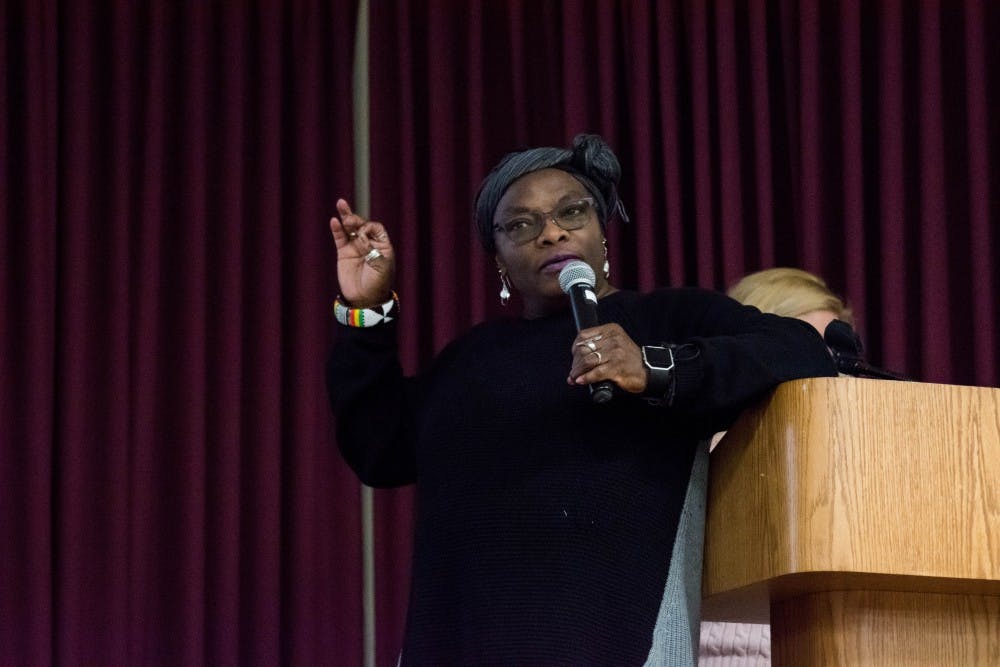Isabella County Human Rights Committee chair speaks to SGA

Maureen Eke talks to the Student Government Association about the Isabella County Human Rights Committee in the Bovee University Center on Monday, Feb. 25.
Central Michigan University Student Government Association opened the Feb. 25 meeting with a presentation from Maureen Eke, CMU English language and literature faculty and chair of the Isabella County Human Rights Committee.
Eke started her presentation by discussing human rights - what they are and why they matter - before explaining the Isabella County Human Rights Committee (HRC), which works to enhance positive interaction between diverse members.
“I am here to introduce the committee, so that you know we do exist and we exist because you have rights, and we are here to protect them,” Eke said.
HRC was established in 2008 by the Isabella County Board of Commissioners, and it deals with issues related to the violations of human rights in Isabella County by reviewing and investigating complaints.
"People who have power should not use it to abuse other people, it does not matter who you are," Eke said. "I will fight for students because I was a student at a certain point. So I will fight for people who cannot, who are not present to defend themselves because I know what it feels like to be marginalized, to be silenced."
Eke made her goal in speaking about the committee to SGA very clear by stressing the importance of students being aware of the HRC's presence in the community.
"Residents of the county include you (students)," Eke said. "You live here, you sleep here, you go to work here, you go to school here, you buy things here, so you do support this community, yes? We agree on that? As such, you have rights that should be protected by the county."
The HRC acts as a liaison between the county, individuals and local minority organizations. If students face discrimination, they should take their case to the Office of Civil Rights and Institutional Equity and if they feel the need, the HRC.
"If this place is supposed to be a welcoming community - Mount Pleasant without a mountain - then it should be pleasant, right?" Eke said. "Forget the mountain."
After Eke's presentation, LeaderShape on-site coordinators, Sydney Reed and Keisha Keaton, also made a quick stop at tonight’s meeting to explain LeaderShape.
“(LeaderShape is) a great time to meet students from across campus, from different organizations," Keaton said. "And we also invite faculty and staff to facilitate small groups, so you can meet professors and staff you wouldn't usually meet in your classes and majors."
The LeaderShape Institute is a four-day program (noted as six days on the website) that focuses on building commitment to values, developing respectful relationships, ignoring the impossible and learning to produce results.
“Something LeaderShape strives to do is help students think about what leadership means to them, some of the values, beliefs and passions that you have," Reed said. "If you think about your ideal world, what would that look like and what actions would help you get there?"
SGA elections
SGA election season has now begun, with potential candidates gathering signatures to become certified for officially running.
“I'm really excited (for the elections); last year, we had the debate and there were a lot of issues brought up from both campaigns," said SGA President Jake Hendricks. "And so, after we talked and had a very constructive discussion, we were able to work on those issues and carry them forward.”
After the candidates are announced, two debates will be held, the first on March 18.






